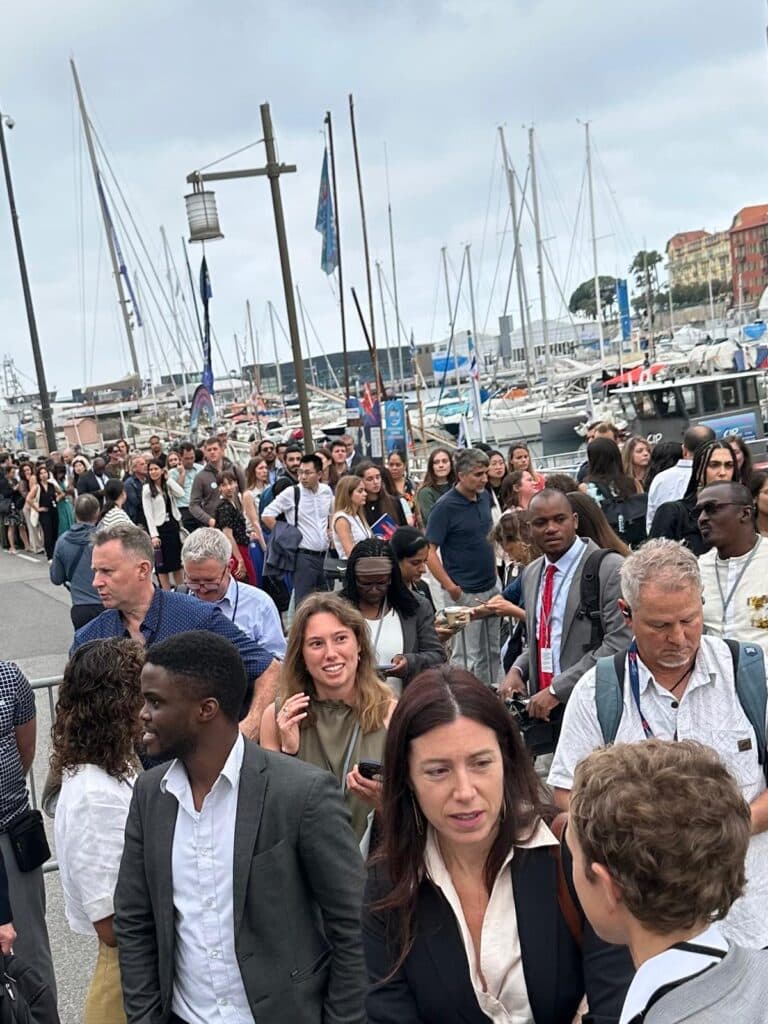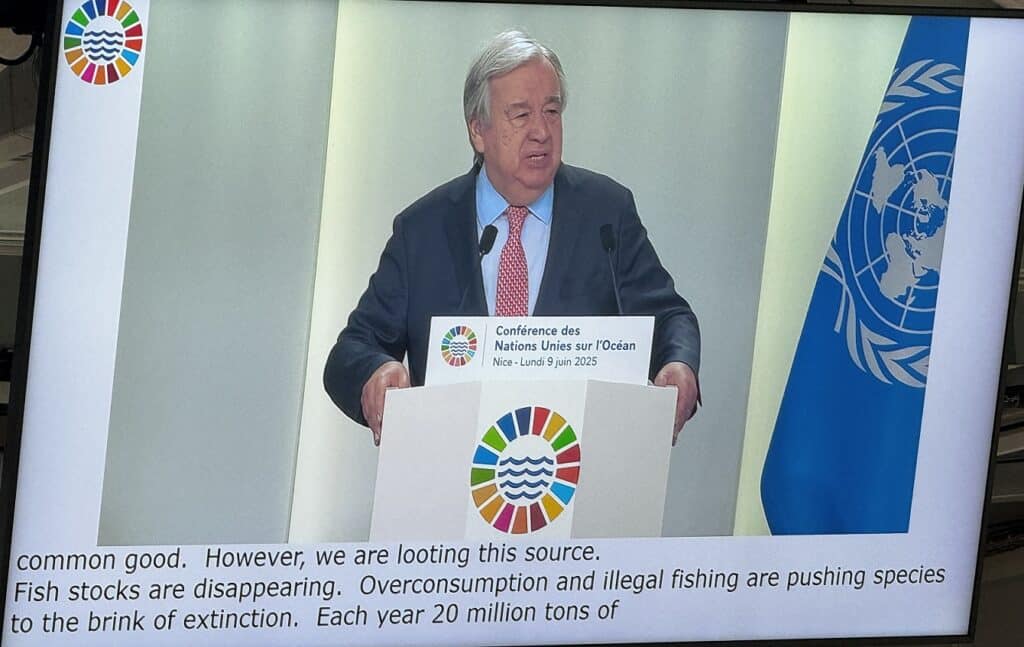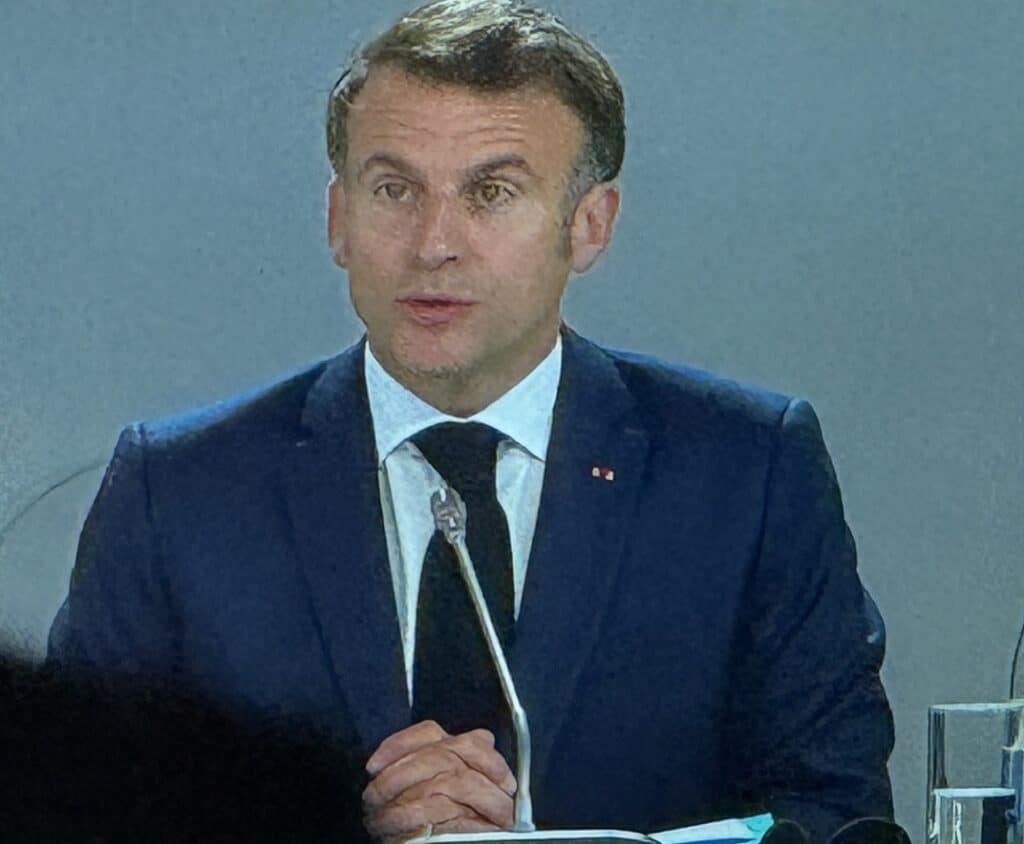World Leaders Unite in an Unprecedented Show of Support for Ocean Action
What a kickoff to the United Nations Ocean Conference. Before sunrise, we were in line, imagining the opening ceremony tickets would be competitive—but we had no idea just how fierce the scramble would be. We were near the front, but there were over 1,000 people in the cue. As soon as the gates opened, a surge of nearly 200 people rushed past us, barely contained by security. For once, the oceans were center stage—and the world was watching. Yes, we got our entry pass, and yes, it was worth it.

The morning began with a powerful speech by António Guterres, the United Nations Secretary-General, who pulled no punches. He described our long and painful history of looting the oceans and set the tone for what must come next: transformation. “Let’s turn plunder into protection,” he declared. Guterres called for bold steps—especially a treaty to address the escalating plastic crisis—and reminded us that SDG #14 (Life Below Water) remains the most underfunded of all 17 Sustainable Development Goals. It was a sobering and urgent call to action.
Next, French President Emmanuel Macron delivered a passionate and deeply informed speech. “We know the stakes,” he said, listing the accelerating declines in ocean health and reminding us that the ocean is a single, interconnected ecosystem that touches all of humanity. “The battle for the ocean is one we must win.”
He emphasized that the only path forward is through evidence-based policy, guided by scientists who must be free to do their work. “Our oceans are not for sale. Greenland is not for sale. Local fisheries are not for sale.” These are shared resources—and the stewardship of them must be equitable and sustainable. Macron challenged the crowd not to rush toward Mars before we fully understand and protect the vast, mysterious depths of our own planet.
There were repeated calls for urgent international action—not just to meet the 30×30 target (protecting 30% of oceans by 2030), but to go further. This week, the push for a global declaration to address plastic pollution is gaining traction, and we’ll be watching developments closely.
Macron’s energy was contagious. Though he apologized for speaking with such passion, it was exactly the kind of bold leadership the moment demands. His unwavering commitment to biodiversity, climate action, and public health resonated deeply.

And then—just when we thought we’d heard it all—came an announcement so big, we’re saving it for the next newsletter. (Can’t wait? Sneak a peek on our social media).
Costa Rica’s President Rodrigo Chaves Robles continued the momentum. As co-host of the conference, he offered a powerful reminder: for too long, the ocean has been treated as a pantry and a dumping ground, yet it remains one of our greatest allies in creating a livable future. He called for a declaration of peace with the ocean. “We only have one ocean and one planet. We only have one opportunity to save it—and the time is now.”

Then came Brazil’s President Luiz Inácio Lula da Silva, who presented alarming statistics on ocean warming and loss. But he balanced the urgency with a hopeful vision: the path forward lies in inclusive education and shifting our mindset. Gulfs, straits, and channels should not divide us—they should connect us, as we work together to protect our shared waters.
By the end of the morning, it was impossible not to feel energized, even overwhelmed, by the sheer force of political will converging here in Nice. The message is clear: it is time to stop hesitating, stop exploiting, and start collaborating—across borders, across sectors, and across oceans. We are witnessing the tides turn, and the Sea Save team are here to help steer the course.
Sincerely,
Phil Coles
Director of Education
Sea Save Foundation




